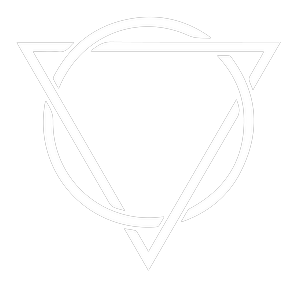There comes a moment in everyone's life when they first experience the thrill of rebellion. For some, it’s sneaking candy before dinner. For others, it’s wearing a Tasmanian Devil tie to church. For the truly bold, it’s saying, “Wait a second—does this make sense?” And just like that, a thinker is born.
“Think for yourself and question authority” is a noble mantra, championed by Greek philosophers such as Socrates, sages such as punk rockers, and that one soverign uncle who eats raw onions plain and writes "I object to registration" in large red ink across car registration forms. In a modern context the phrase is most associated with Timothy Leary, a psychologist and psychedelic advocate, who used it during lectures and writings advocating for personal freedom, exploration into advances of consciousness, and skepticism toward institutional control. It reflected his broader countercultural philosophy, which included his more infamous mantra: "Turn on, tune in, drop out" which sounds stoner dumb when you first hear it but the more one meditates on it, the more they come to the realization that's just the gears of the imperial programming talking. Enlightenment thinkers like Kant and Voltaire promoted self-reason and doubt of dogma but in a modern context, Leary crystallized it into a memorable modern slogan, tailored for the breift period of American sanity that was the 1960's.
Thinking for yourself means "forming your own worldview based on evidence, logic, and personal reflection rather than passively absorbing the views of others." It fosters independent judgment, creativity, and resilience against manipulation. In times of widespread misinformation and red hat cult conformity, this skill becomes essential for truth-seeking and personal integrity.
Questioning authority complements this by "encouraging people to scrutinize the legitimacy, motivations, and consequences of those in power"—whether in dysfunctional government, more dysfunctional corporations, and even more dysfunctional religious institutions. Blind obedience to any, or to all mixed together, leads to our current injustices, corruption, and the erosion of rights. History shows that major progress—civil rights, scientific breakthroughs, social reforms—often required individuals and groups to challenge accepted norms and official narratives.
Together, these practices form the bedrock of critical thinking and are foundational to intellectual freedom, democratic society, and moral responsibility. They are often said together because they represent two sides of the same principle: the right and responsibility of individuals to engage critically with the world around them and are essential not only for personal growth but also for collective progress. Without the willingness to think independently and interrogate established power, societies risk becoming morally complacent and intellectually stagnant.
The idea is simple: don’t just accept what you’re told—use your brain! But like any powerful idea, it’s important to wield it responsibly. After all, “thinking for yourself” doesn't mean “Googling for six minutes and declaring yourself an expert in mRNA vaccines or thermonuclear engineering.” Thinking for yourself sounds way cooler than it actually is. In theory, it's a noble pursuit of truth and wisdom. In practice, it often involves spiraling into a 2 a.m. internet rabbit hole about how pigeons are secretly government drones.
Meanwhile, questioning authority is deeply satisfying, especially if the authority in question is your boss, your Homeowners Association, or your seventh-grade gym teacher. Many people don't think for themselves, but are instead given what to think by authority figures and not so wise elders. But here’s the twist: thinking for yourself isn’t about being right all the time. It’s about being willing to change your mind when you’re wrong. It’s the intellectual equivalent of wearing socks with sandals, realizing you’ve made a mistake, and taking one of them off. You’re still strange, but you’re halfway to wisdom. Questioning authority has its place in progress. Without it, we’d still be treating headaches with leeches and nobody would have ever asked, “What if we put pineapple on pizza?” And let’s be honest—some authority is okay. Like seatbelt laws or instructions on IKEA furniture.
Blind obedience is bad. But blind rebellion can sometimes also be. Ideally, we should be able to say, “I respectfully disagree,” instead of “WAKE UP SHEEPLE.” In the end, the art of thinking for yourself and questioning authority is really about balance: enough skepticism to keep you curious, and enough humility to admit when you're out of your depth. It's about being simultaneously respectful to elders, while also constantly questioning them. It's about knowing when to challenge the system—and when to accept that, actually, yes, your dentist does know more about molars than you do. So question boldly. Think freely. And maybe—just maybe—leave the keyboard proclamations that you're an expert in ANYTHING in the drafts folder.
